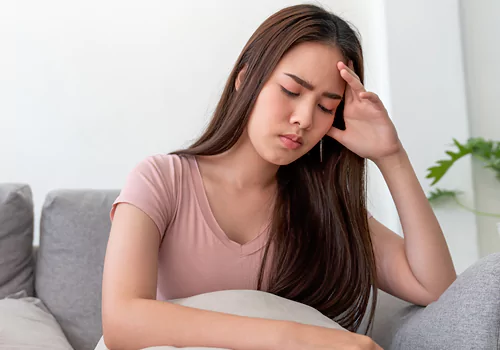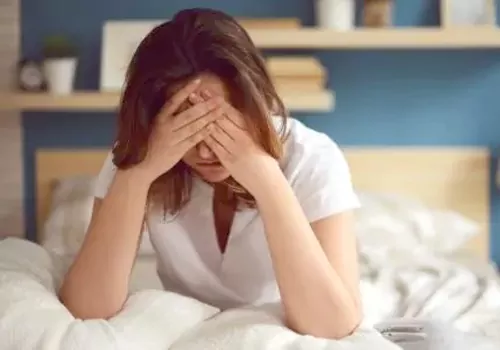How to determine Premature Menopause
.png)
The latest health issue among women above 35 is premature menopause—defined as the permanent ending of a woman’s menstrual period before the age of 40—It can be a devastating blow for people who are yet to conceive.
Symptoms of premature menopause which could be anything from the absence of monthly periods for more than one year—before the age of 40 to Hot flashes and night sweats are very common, difficulties with sleeping, Memory and concentration difficulties ,Urination becomes more frequent coupled with decreased libido, can also lead to mood swings and irritability.
Causes of premature menopause
For the vast majority of women who enter menopause prematurely it could be due to various factors like genetics, uterus removal, cancer treatments, or any kind of auto immune diseases which could cause premature menopause. Decrease in the female sex hormone, estrogen, is responsible for the majority of the issues experienced during this time.
So how do we determine premature menopause?
To help determine if you may be reaching menopause, your doctor will ask if you've had signs like hot flashes, irregular periods, sleep problems, and vaginal dryness. But these signs are not enough to determine that you are reaching menopause.
You need a definitive diagnosis of premature menopause, which is also known as hypergonadropic hypogonadism. A series of blood tests to look for levels of the following hormones: follicle stimulating hormone (FSH), luteinizing hormone (LH), anti-Mullerian hormone (AMH), estrogen and progesterone, among others are done.
What are the treatment options for premature menopause?
Women with premature menopause should request regular bone mineral density scans from their Gynacocologist.
Declining estrogen levels put premenopausal women at increased risk of bone loss, fractures and even osteoporosis. “Bone loss ups its ante right around age 30, regardless of whether your ovaries fail or not,” says Dixon. “If you have no estrogen, it really kicks into high gear.”
Some research suggests that low estrogen also puts women at risk of heart disease. Most fertility specialists will prescribe a low-dose birth control pill (BCP) containing estrogen and progesterone to this group of women, until they reach the age of natural menopause, just past 50.
The estrogen in BCPs helps women cope with some of the debilitating symptoms of menopause and protects against bone less as well. The progesterone helps protect a woman’s uterus from endometrial abnormalities by causing her to shed her lining every month.
Apart from talking to your doctor about treatments like menopausal hormone therapy that can help with symptoms of menopause you can also discuss ways to protect your health. Eating a healthy, balanced diet and exercising regularly can also help menopausal women maintain bone, heart and overall wellness.








.webp)